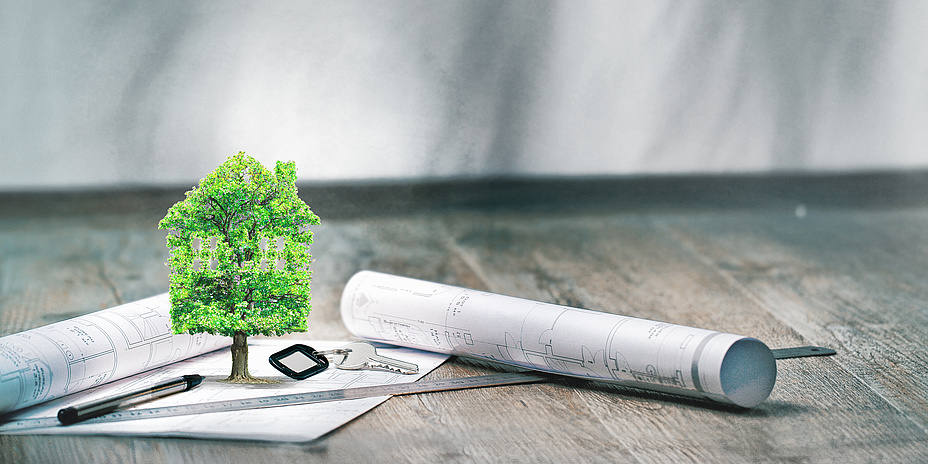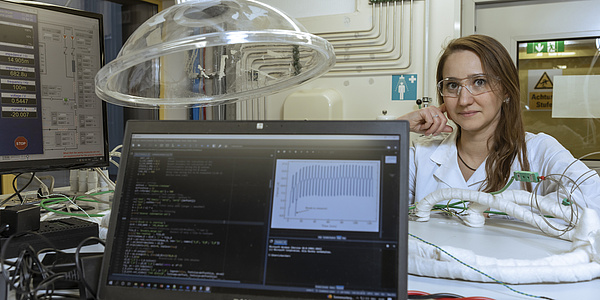Sustainable Construction – a Question of Attitude

When Alexander Passer looks down on the building sites for Graz’s future Smart City from his office on the 11th floor of the Science Tower Graz, he’s not really satisfied: In the view of the professor of sustainable construction at TU Graz, much greater effort than that required to scrape above the target is needed to make building truly sustainable and climate-friendly. Models for achieving this will be the subject of discussions at the Sustainable Built Environment D-A-CH Conference 2019 to be held at TU Graz this September.
The challenges have been obvious for some time: how can we use our planet’s increasingly scarce resources so as to leave our descendants a suitable basis for their existence (i.e. sustainability)? And what do we have to do to keep anthropogenic or man-made global warming to a minimum and meet the targets of the Paris Agreement? A drastic reduction in greenhouse gas emissions will be necessary. This is especially true for the construction sector, which accounts for around 40% of energy use and 50% of resource consumption worldwide.
Improving buildings’ energy efficiency, and using green (construction) materials and new digital planning approaches will not be enough to cut emissions. “We need a rethink along the entire chain, from planning and construction to use and right the way to the end of the life cycle,” Passer believes. “The aim is to leave behind structures that represent a form of capital, not a burden.” Taking the life cycle as a whole, these increased costs can be recouped in a short time.
International research netzwork for sustainable construction
At the Sustainable Built Environment D-A-CH Conference from 11 to 14 September 2019 at TU Graz, researchers will address the question of what they can do to achieve climate goals and contribute to sustainability. Titled ‘Transition Towards a Net Zero Carbon Built Environment’, the conference will take place in cooperation with the BOKU Wien, Karlsruhe Institute of Technology and ETH Zurich. More than 200 presentations will cover four aspects of sustainable construction: assessment and certification, design and decision-making processes, cities and networks, and innovation and implementation. The latter is one of the conference’s key focuses. Selected contributions from SBE19 in Graz will feed into the Beyond 2020 World Sustainable Built Environment Conference, which is being held in Gothenburg, Sweden. Beyond 2020 will play host to sustainability and construction experts from all over the world.
Science Tower Graz, a flagship project that opened in 2017, is proof that sustainability can be a feature of construction work. The Working Group Sustainable Construction at TU Graz provided scientific support for the project and now occupies one floor of the building. The facade of the cylindrical, 14-storey building is made of energy glass, which generates electricity from light, while concrete core activation allows for largely greenhouse-gas-free cooling and heating. The Science Tower also features an active, rotating PV shading system, smart LED lighting, urban farming zones and other innovative technologies.
Sustainable Built Environment D-A-CH Conference:
Transition Towards a Net Zero Carbon Built Environment
11–14 September 2019
Organiser: TU Graz, Institute of Technology and Testing of Construction Materials, Working Group Sustainable Construction
In cooperation with the Institute of Construction Management and Economics, TU Graz, the University of Natural Resources and Life Sciences, Vienna (BOKU), Karlsruhe Institute of Technology and ETH Zurich
Kontakt
Alexander PASSER
Assoc.Prof. Dipl.-Ing. Dr.techn. MSc
Institute of Technology and Testing of Construction Materials
Working Group Sustainable Construction
Waagner-Biro-Straße 100/XI
8020 Graz
Phone: +43 316 873 7153
alexander.passer@tugraz.at




